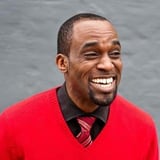Summary
Every designer has a story about a terrible experience with developers, or product managers, or the business. Unfortunately the reverse is equally true. We’ll explore these problems through the lens of Sturgeon’s Law — usually stated as “ninety percent of everything is crap”. And “everything” includes Design! We’ll see how people inside and outside of a discipline can have radically different experiences of its competencies. Then we'll work through options to help break down those misconceptions — so we can create happier, more empathic, organisations.
Key Insights
-
•
Sturgeon’s Law applies not only to fields but also to communities, creating biases in how disciplines perceive themselves and each other.
-
•
The best practitioners cluster together, forming an 'awesome bubble' that skews their perception of their discipline to be far more positive than widespread reality.
-
•
There is a second bias where the public or presented image of a discipline is 90% awesome, but many people’s lived experiences are flawed, causing skepticism.
-
•
Bad experiences in one’s career (e.g., with testers or research) can profoundly bias how we judge entire disciplines later on.
-
•
Design ops work can be misinterpreted as a power grab or redundant work if implemented without considering teams’ autonomy and context.
-
•
To rebuild trust, leaders must listen to and believe people’s lived experiences before attempting to educate or advocate for best practices.
-
•
Using alternative labels and focusing on outcomes rather than jargon or processes helps overcome negative preconceptions and opens dialogue.
-
•
Questioning your own assumptions and recognizing which 'bubble' you live in enables more empathetic and effective collaboration.
-
•
Organizational transformation is messy and disciplines going through change are not unique—everyone is adapting simultaneously.
-
•
Focusing on outcomes (e.g., risk reduction) rather than specific methodologies helps align teams with differing past experiences and biases.
Notable Quotes
"90% of everything is crud."
"The best people in a community experience it as 90% awesome when the reality is 10%."
"If somebody tells me agile is wonderful and my only experience is a process-heavy, estimate-driven feature factory, it’s hard to take them seriously."
"Believe people’s lived experiences and actually listen to what people tell us and believe them."
"Use different words. If somebody has a terrible experience of work labeled a certain way, it’s really hard to use that label without bringing those experiences back."
"Talking about outcomes first is a powerful technique for people who have had bad experiences in discussions about good and bad practice."
"Question your assumptions, question your immediate reactions to another community or discipline."
"Transformation is top of everyone’s mind right now, but that means we are not alone."
"We can’t innovate until we’re aligned with everybody else over what works and what doesn’t work."
"We have to explore and understand both the good and the bad so it can build something better together."
Or choose a question:
















More Videos
"You’re born on third base but think you hit a triple — that’s the enterprise software delusion."
Standardizing Product Merits for Leaders, Designers, and Everyone
June 15, 2018

"Most strategy today is guesswork based on what others are doing, not based on situational awareness."
Simon WardleyMaps and Topographical Intelligence (Videoconference)
January 31, 2019

"Many smartwatch designs assume male hands as default, excluding smaller wrists and diverse body types."
Sandra CamachoCreating More Bias-Proof Designs
January 22, 2025

"Taking responsibility starts with an apology and seeking regular feedback."
Darian DavisLessons from a Toxic Work Relationship
January 8, 2024

"I challenge everyone to create a strategic AI integration plan that goes beyond everyday tasks to achieve career and company goals."
Fisayo Osilaja[Demo] The AI edge: From researcher to strategist
June 4, 2024

"Creating tangible artifacts forces reaction and debate, helping break enterprise paralysis and drive decisions."
Uday GajendarThe Wicked Craft of Enterprise UX
May 13, 2015

"Relying on a single content strategist was a strategic mistake that created a single point of failure."
Davis Neable Guy SegalHow to Drive a Design Project When you Don’t Have a Design Team
June 10, 2021

"People felt designs were self-evident and too much explanation was a barrier to using the patterns."
Eniola OluwoleLessons From the DesignOps Journey of the World's Largest Travel Site
October 24, 2019

"Design producers love their creative tools and want to keep using them without multiple manual reporting steps."
Aurobinda Pradhan Shashank DeshpandeIntroduction to Collaborative DesignOps using Cubyts
September 9, 2022
















